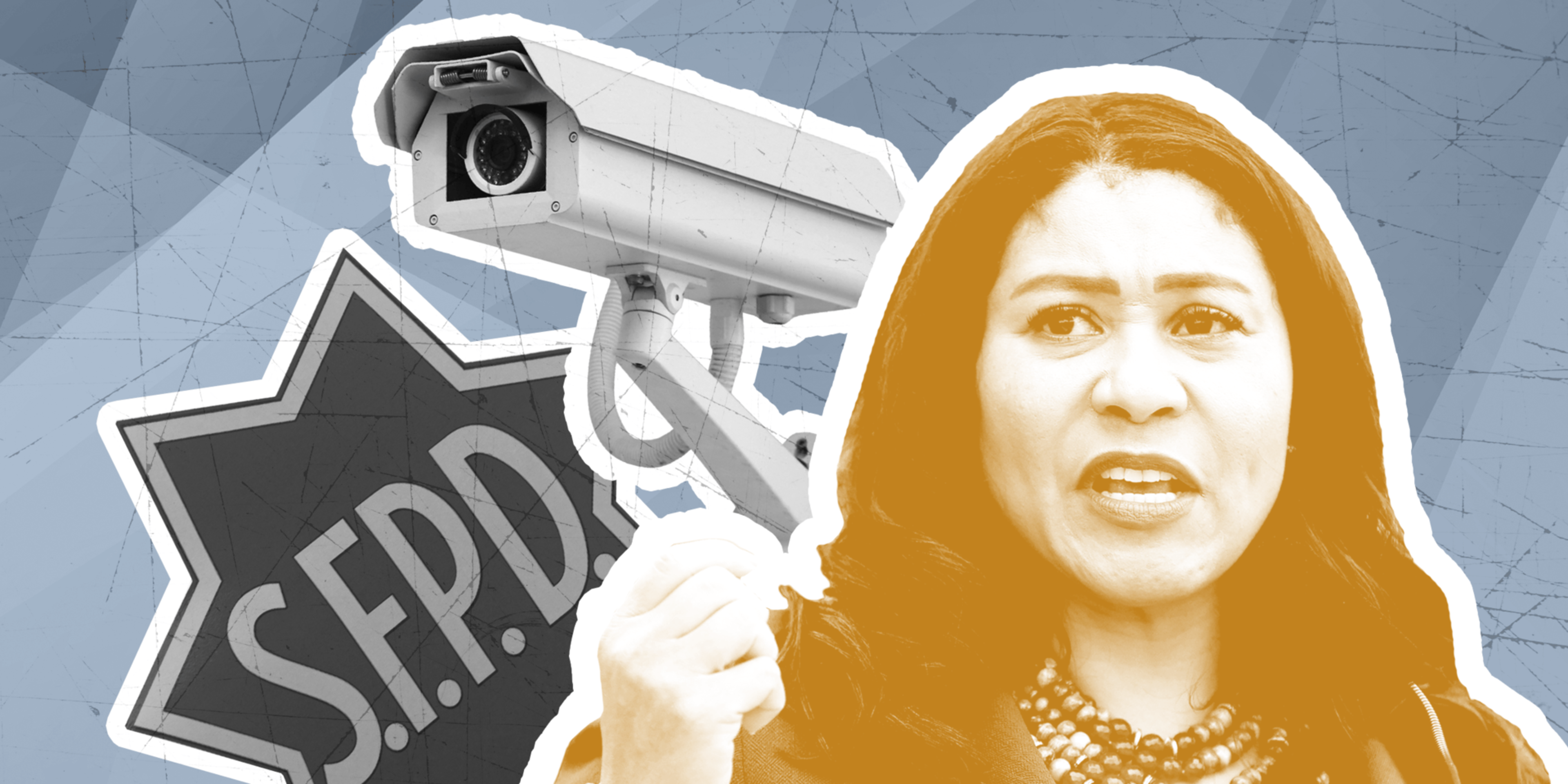Mayor London Breed triggered a confrontation with the Board of Supervisors and angered privacy advocates on Tuesday evening when she placed a measure on the June ballot to expand the San Francisco Police Department’s use of live surveillance.
In a statement, the mayor threatened to move forward with her measure unless the Board of Supervisors agreed to fall in line and approve her plan.
But The Standard has since learned that Breed’s proposal could square off with a competing ballot measure that several supervisors submitted to elections officials a little more than an hour after the mayor’s measure—and a mere 16 minutes before the deadline to submit initiatives for inclusion in this June’s election.
The mayor’s ballot measure is the latest development in a fierce debate over live surveillance that began in late 2020, when civil liberties groups sued the city alleging police illegally spied on protesters demonstrating against the Minneapolis police killing of George Floyd.
The lawsuit—filed by the Electronic Frontier Foundation and ACLU of Northern California—alleges that police violated a city surveillance ordinance by gaining live access to a camera network in Union Square after protests were followed by looting in the shopping area.
Breed is proposing her measure on the heels of another round of highly publicized looting at Union Square last November, and as part of her plan to crack down on drug dealing in the Tenderloin. The measure would carve out two exceptions in the current ordinance, which bars city agencies from obtaining new surveillance technologies without prior approval from the Board of Supervisors.
The measure would allow police to temporarily monitor live camera networks during critical events including looting, rioting, organized thefts, mass assaults and terrorist acts. Live surveillance could also take place in so-called “Public Safety Crisis Areas” such as open-air drug markets and neighborhoods that see a spike in violent crime over a two-week period.
In her statement, Breed said the measure would “give our law enforcement the tools they need, while also maintaining strong oversight and safeguards to ensure these tools are used appropriately to address dangerous criminal activity.”
Currently, the city only allows agencies to temporarily use new surveillance technologies in emergency situations involving “imminent danger of death or serious physical injury.” Otherwise, the Board of Supervisors must first approve a policy regulating the use of the technology.
But her proposal sparked an immediate response from privacy advocates, as well as members of the Board of Supervisors who introduced their own proposal Tuesday for the June ballot.
The measure—from Supervisors Aaron Peskin and four of his colleagues—would affirm the existing ordinance and streamline the process for agencies to obtain board approval.
Peskin, who authored San Francisco’s current ordinance, said city agencies have proposed 30 different policies for using surveillance technologies since the law went into effect in July 2019. San Francisco police, however, have not submitted a proposal for officers to gain access to live footage.
“The police have just refused to comply with the law and now they are asking for a get-out-of-jail-free card,” said Peskin, who has the support of Board of Supervisors President Shamann Walton and supervisors Dean Preston, Connie Chan and Hillary Ronen.
Peskin said he does not necessarily oppose police using live surveillance, but criticized the mayor’s proposal for giving the cops a “broad back door” to avoid complying with the law.
Brian Hofer, an Oakland-based privacy advocate who helped author the existing ordinance, questioned why Breed would move forward with a ballot measure when police could already seek approval to use live surveillance from the Board of Supervisors.
“The only thing that makes sense is that she just thinks that the board is going to be obstructionist,” Hofer said.
He noted that the board has yet to reject a proposal from a city agency seeking to use a new surveillance technology. The board has even approved a proposal from the San Francisco Municipal Transportation Agency that included live video monitoring.
Both Breed and supervisors could decide to abandon their ballot measures should an agreement to amend the ordinance be reached at the board level.
Meanwhile, the EFF and ACLU’s lawsuit (opens in new tab) is expected to be heard in court Friday. The groups are asking a judge to find that the city violated the surveillance ordinance.
Mike Ege contributed to this report. He can be reached at [email protected].
